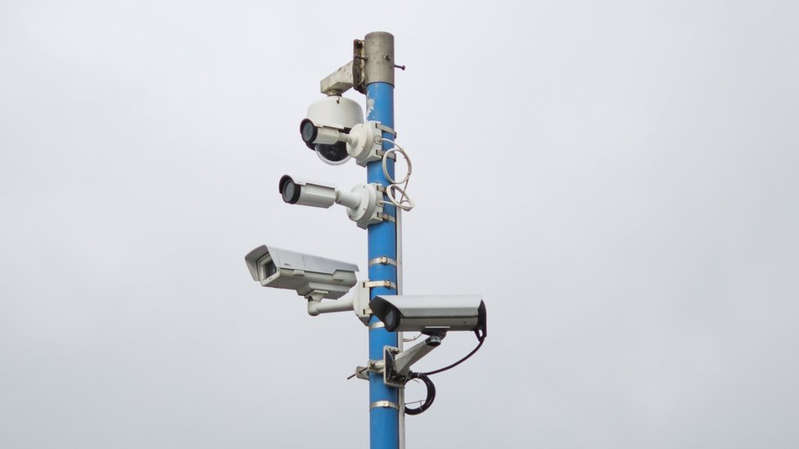Two EU agencies responsible for the protection of personal data have called for a complete ban on the use of artificial intelligence for facial recognition and other methods of identifying people in public places. Earlier, the European Commission proposed to severely restrict, but not completely prohibit the use of AI in this area.
“If we want to preserve our freedoms and create human-centered AI legislation, then we need to start with a general ban on facial recognition systems in public places,” the heads of the European Data Protection Board (EDPB) said in a joint statement. ) and the European Data Protection Supervisor (EDPS) Andrea Jelinek and Wojciech Wiewierowski.
The European Data Protection Supervisory Authority monitors the compliance with the rules for the protection of personal information of the EU institutions, and the European Data Protection Council is the union of the relevant supervisory authorities of the EU countries.
- Artificial intelligence – a threat or a helper for humanity?
- Artificial intelligence has shown sexism to end the hiring app from Amazon
“The use of biometric identification at a distance in public places will mean the end of the anonymity of people in such spaces. Facial recognition programs and the like intrude so seriously into the sphere of fundamental rights and freedoms that they question their very essence,” the heads of these two explain their position. departments.
They call for the ban in public places of programs for identifying people by face, gait, voice, fingerprints, DNA and other biometric and behavioral features.
In addition, the heads of the EDPB and EDPS believe that the EU should also ban AI systems that classify people by ethnicity, gender, political opinion or sexual orientation. They propose to allow the use of systems that recognize human emotions only in a very limited set of cases – for example, in medicine.
European Commission project – restrictions, but not a ban
In early April this year, the European Commission released its bill – a set of rules for the use of artificial intelligence, in which it proposed to rather severely restrict the use of AI in identifying people.
The number of outdoor surveillance cameras in the world is constantly growing
The European Commission, for example, proposes to prohibit the EU authorities from using such AI systems that allow introducing a “social rating” like the Chinese, and Brussels considers it necessary to use AI in recruiting, protecting vital infrastructure, compiling credit ratings, in the field of migration and law enforcement. surround with strict rules and restrictions.
For violation of these rules, if a private company is guilty of it, the European Commission proposes to fine up to 6% of the company's turnover, but not less than 30 million euros.
- Almost like Dali: artificial intelligence DALL · E drew a radish with a dog on a leash
- How artificial intelligence can raise the birth rate in Japan
The heads of the two EU supervisory bodies, however, believe that the use of AI in certain areas should not be limited, but completely banned. The opinion of the EDPB and EDPS does not oblige the European Commission to anything, but it will have to take it into account – as well as the opinion of individual EU countries, as well as the position of factions in the European Parliament.
The European Commission will have to agree on its bill with all of them, and this process, experts say, may take several years.
What technologies are we talking about?
Human rights defenders and politicians are most concerned about the use of these technologies by the police and intelligence services, but face recognition is also used, for example, in automatic gates at airports that match a face with a passport.
Smartphones recognize the owner by face, social networks recognize the person in the photo; more and more facial recognition is used in banking and commerce – for online customer identification and in “face payment” technologies as a key to an account.
The world press writes quite a lot about China's giant citizen tracking system, which also includes real-time face recognition systems. Chinese cities are the top five cities in the world with the most security cameras. In Moscow, within the framework of the “Smart City” program, more than 100 thousand cameras have already been placed on the streets, in transport, in entrances.
- Smart City or Big Brother? How the mayor's office learned to know everything about Muscovites
Taking care of private data
In Western countries, the police and intelligence agencies use facial recognition systems quite widely, but the public has many questions about this practice. Human rights defenders and politicians are concerned, firstly, about the inviolability of private life, and secondly, mistakes in recognition and, as a result, unjustified arrests. Critics argue, among other things, that programs are especially often mistaken when recognizing women (due to cosmetics) and dark-skinned citizens (due to less contrast in facial features).
In the United States, computer technology giants Amazon, IBM and Microsoft for these very reasons decided last year not to sell their facial recognition software to the police. But these programs are far from being produced only by them.
- China is testing emotion-recognition cameras on Uighurs. And the recognition of the Uyghurs themselves
- Smart City or Big Brother? How the mayor's office learned to know everything about Muscovites
In addition, according to Thales, six cities have banned facial recognition in the United States, including San Francisco, Boston and San Diego, and Virginia, and Massachusetts has restricted the use of these technologies since May this year.
In the European Union and the newly exited Britain, the collection, use and protection of personal data is still governed by the extensive and strict General Data Protection Regulation (GDPR), which came into force in 2018.

